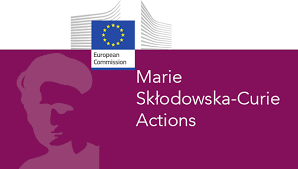Beyond 1945: Rethinking the end of the Second World War
Conference programme
19 January 2024
9:00 – 9:15 (all times CET)
Opening remarks
Thomas Bottelier and Guillaume Piketty (CHSP)
9:15 – 10:30
Panel 1: The environmental history of war termination
- Alex Souchen (University of Guelph):
Using the oceans for disarmament: Global munitions dumping after the Second - Chad Denton (Yonsei University):
Demobilising metals: The Vichy Salvage Service and exiting the war
10:30 – 11:00
Coffee and tea break
11:00 – 12:30
Panel 2: Political community and war termination in Europe and the Americas
- Nicholas Courtman (King’s College London):
Volksdeutsche into West Germans: Dealing with Nazi naturalizations of ethnic Germans in the 1950s - Alexandre Fortes (Universidade Federal Rural do Rio de Janeiro):
Brazil’s transition out of war and racial democracy - Olivier Burtin (Université de Picardie):
Veterans, the state, and political community in the United States
12:30 – 12:30
Lunch break
13:30 – 15:00
Panel 3: Intimate and collective experiences of coming out of war
- Ruth Lawlor (Cornell University):
Sexual violence and coming out of war - Lorena De Vita (Utrecht University):
Negotiating reparations for victims of National Socialism, 1939-present - Julie Le Gac (Université de Paris Nanterre):
Coming out of a ‘war of nerves’
15:00 – 15:30
Coffee and tea break
15:30 – 16:45
Panel 4: The political violence of war termination in Europe
- Félix Streicher (Maastricht University):
The continuum of violence in Luxembourg-occupied Germany, 1945-46 - Olga Byrska (European University Institute):
Unachieved left-wing revolutions in Britain, France and Poland, 1944-48
16:45 – 17:00
Break
17:00 – 18:00
Keynote address & concluding discussion
Camilo Erlichman (Maastricht University):
The problem of the end: Rethinking the ‘postwar’
Register
Évènement en Anglais
THINKING THROUGH PERMAFROST
Sciences Po Conference organized by: Sabine Dullin (Sciences Po CHSP) and Anastasiya Halauniova (Sciences Po CSO, Bruno Latour Fund).
Today, permafrost undergoes a remarkable revival. Journalists, scientists, citizens, and politicianseveryone appears to be invested in preventing the deterioration of this Arctic ground.
What unites these emerging accounts of permafrost is an acknowledgement of its 'sudden' global visibility. One gets the impression that permafrost has not been a matter of concern up until very recently. But where was permafrost before?
ln this hybrid workshop, we will explore alternative ways to think through permafrost that engage with its multiple essences-an environ mental object, a livelihood, an infrastructure, a scientific matter-that have been evident and meaningful for some peoples for centuries.
Our goal is to contribute to an understanding of permafrost that moves beyond recognizing it as a mere surface or a hazard. Indeed, what is permafrost in the actual practices of living, dwelling, building, moving, monitoring, researching, and policy-making?
Program
■ 14:00-14:15
Opening Remarks by Sabine DULLIN (CHSP) and Anastasiya HALAUNIOVA (CSO Bruno Latour Fund)
■ 14:15-15:00
Susanna GARTLER (University of Vienna, anthropologist)
What does Permafrost Mean to You? lnuvialuit and Gwich'in First Nation Knowledge Holders' Perceptions of a Thawing Relation
Discussants: Ruslan SHAKHMATOV (Hokkaido University, geoscientist), Hiroki TAKAKURA (Tohoku University, anthropologist)
■ 15:00-15:45
Charlotte WRIGLEY (University of Stavanger, geographer)
Microbial Matters: Permafrost Worldmaking with Unwanted Others
Discussants: Sandrine REVET (Sciences Po CERI, anthropologist); Aleksandr NOGOVITCYN (Hokkaido University, biogeochemist)
■ 15:45-16:30
Anastasiya HALAUNIOVA (Sciences Po CSO, Bruno Latour Fund, sociologist)
Embracing Degradation: Monitoring Thermal State(s) of Permafrost(s) in Practice
Discussants: Katja DOOSE (University of Freiburg, historian), Florence MAGNIN (Université Savoie Mont-Blanc, geomorphologist)
[30mn Coffee and tea break]
■17:00-17:45
Sabine DULLIN (Sciences Po CHSP, historian)
Sakha, the Land of the Permafrost: Taiga Ecosystem and Sovereignty of the Republic
Discussants: Go IWAHANA (University of Alaska Fairbanks, geocryologist), Natalia DOLOISIO (Utrecht University, anthropologist)
■ 17:45-18:30
Pey-Yi CHU (Pomona College, historian)
Confronting the Coloniality of Permafrost
Discussants: Giacomo PARRINELLO (Sciences Po CHSP, historian), Florence MAGNIN (Université Savoie Mont-Blanc, geomorphologist)
■ 18:30
Concluding discussion with Jérôme GAILLARDET (IPGP) and Charlotte HALPERN (Sciences Po, LIEPP)
Évènement en Anglais
Dernières avancées de la recherche indépendante, enseignement, journalisme et art
Journée d'études en français
This project has received funding from the European Research Council (ERC) under the European Union’s Horizon 2020 research and innovation programme (grant agreement No 759707).
Programme :
Anaïs Clermont, étudiante en 1ère année, Sciences Po, ancienne élève de la Sciences Po Summer school
14h00 — 16h00 Le journalisme face au secret défense et au secret nucléaire, découvertes et enjeux de formation
Responsable scientifique de l'événement : Benoît Pelopidas, Sciences Po-CERI


 19/01/2024
19/01/2024 09:00
09:00 





